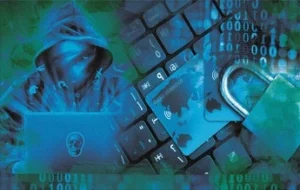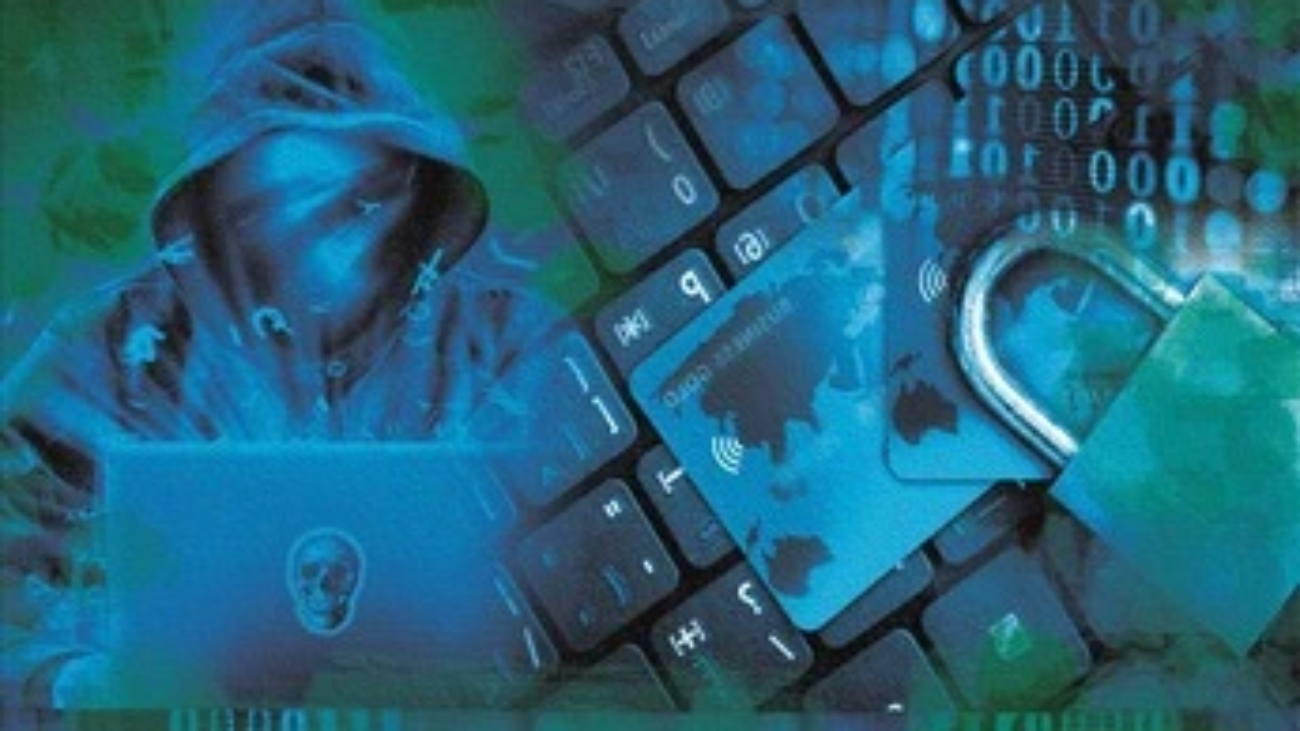Cyber Law in India: A Comprehensive Overview
Today’s technology has brought many changes to the world, as individuals communicate, do business, and even obtain knowledge in the twenty-first century using digital technology. As the demand for the internet and other digital platforms has increased, so have cyber threats. The internet is a source of several legal and security challenges, including articles about online scams and data theft, cyberbullying, and digital terrorism.
To address these issues, Cyber Law in India provides a legal framework that governs activities in the digital environment. It ensures the responsible use of technology, protects individuals and institutions from cybercrimes, and enforces legal accountability for online misconduct.

What is Cyber Law?
Cyber law is the area of law that deals with legal issues concerning the internet, computers, and digital communication. It controls electronic transactions, safeguards online privacy, and combats cybercrime such as hacking and identity theft. Cyber law ensures the legality and security of digital activity, as well as the prevention of technological misuse. In India, the Information Technology Act of 2000 administers cyber law by legalizing electronic documents and outlining punishments for cyber violations. The primary purpose of Cyber Law is to provide a secure digital environment for both individuals and corporations.
Need for Cyber Law in India
With the rapid growth of internet usage, digital payments, e-commerce, and online communication, India has witnessed a sharp rise in cyber threats. To address these issues and ensure secure digital transactions, the need for cyber law became essential.
Legal Recognition of Electronic Records and Digital Signatures (Sections 4–10A)
Cyber law adds legal weight to electronic documents and digital signatures, allowing electronic contracts and transactions to be recognized by the law. This enables more efficient e-commerce, digital communication, and safe digital administration.
Cybercrimes and Penalties (Sections 43–47, 66–74)
The IT Act identifies and punishes a variety of cybercrimes, including hacking, data breaches, identity theft, online defamation, cyberstalking, and disseminating obscene content. The gravity of the offense determines the penalty, which can range from fines to jail.
Misuse of Social Media and Online Platforms
Fake news, hate speech, manipulated photos, and unpleasant content travel quickly over social media, frequently causing social unrest or psychological trauma. Cyber law helps to regulate such usage and gives legal means for removing harmful or illegal content.
Protection of Sensitive Data
With organizations and apps gathering personal data such as names, financial information, and biometrics, the danger of misuse or leaking is significant. Cyber law requires data protection standards and responsibility in order to secure consumers’ privacy and information.
Rise in Online Financial Fraud
Phishing emails, false UPI links, OTP fraud, and card cloning have resulted in significant financial losses. Cyber law is critical for detecting, preventing, and punishing such frauds while also protecting consumers and increasing trust in online banking and payments.
Digital Evidence and Legal Validity
In cybercrime cases, emails, IP records, chats, and digital transactions are used as evidence. Cyber law grants electronic recordings legal character, allowing courts and police to use them in investigations and trials, ensuring justice in cases involving digital crime.
The Information Technology Act, 2000 (IT Act)
The Information Technology Act of 2000 is India’s first law regulating online activity. It legalizes electronic records and digital signatures, promotes safe digital communication, encourages e-commerce, and punishes cybercrimes like hacking, identity theft, and online fraud.
Key Features of the IT Act, 2000
The Act defines cybercrimes, establishes criteria for digital signatures, acknowledges electronic records, and specifies punishments for cybercrime. It also governs intermediaries, allows for the use of digital documents, and creates bodies for adjudication and appeals.
Amendments to the IT Act, 2008
The 2008 amendment broadened the statute to include offenses such as cyber terrorism, identity theft, video voyeurism, and publishing obscene material. It also improved data privacy regulations and highlighted the role and responsibilities of intermediaries such as websites and platforms.
Objectives of Cyber Law in India (Under the IT Act, 2000)
The Information Technology Act, 2000, commonly known as the IT Act, was enacted to provide a legal framework for electronic governance and to address the growing need for regulation in the cyber space in India. The key objectives of Cyber Law under the IT Act, 2000, are as follows:
-
Legal Recognition of Electronic Records and Digital Signatures
The IT Act’s major purpose is to extend legal legitimacy to electronic records and digital signatures. This goal promotes the use of electronic documents in government and corporate activities, thereby replacing traditional paper-based processes. Digital signatures verify the validity, integrity, and non-repudiation of electronic communications. -
Promotion of E-Governance
The Act aims to promote the use of electronic means in government by allowing for the electronic submission of documents and official records. This purpose contributes to increased transparency, efficiency, and convenience in government services. -
Prevention and Control of Cybercrimes
The IT Act specifically addresses cybercrime, including hacking, identity theft, data theft, cyber terrorism, and online publication of obscene material. The law aims to safeguard users and prohibit illegal activity in cyberspace by identifying certain crimes and providing punishments. -
Protection of Privacy and Data Security
In the digital age, maintaining individuals’ privacy and securing sensitive information is critical. The IT Act provides ways to protect data and prevent illegal access, as well as to ensure electronic data security and integrity. -
Facilitating Secure Electronic Commerce and Transactions
The Act creates a legal framework to enable electronic commerce and online business transactions by establishing the legitimacy of electronic contracts and agreements, hence increasing trust in digital trade. -
Establishment of Regulatory Authorities
The Act establishes organizations like the Controller of Certifying Authorities (CCA) to regulate digital signatures and the Cyber Appellate Tribunal to resolve cyber disputes, ensuring that the law is effectively enforced.
Major Provisions under Cyber Law in India (IT Act, 2000)
The Information Technology Act, 2000, is the primary legislation governing cyber activities in India. It provides a legal framework for electronic governance, digital transactions, and cybercrime prevention. The major provisions are:
Legal Recognition of Electronic Records and Digital Signatures
The Act offers legal validity to electronic records and digital signatures, making electronic papers legally comparable to paper documents. This permits secure and authenticated electronic transactions.
Regulation of Certifying Authorities
The Act established the Controller of Certifying Authorities (CCA) to oversee the issuing and management of digital signature certificates. These certificates are issued by Certifying Authorities (CAs) to enable online identity verification.
Cybercrimes and Penalties
The IT Act defines several cyber offenses such as:
-
Hacking (Section 66): Unauthorized access to computers or networks, punishable by imprisonment and fines.
-
Identity Theft and Fraud (Sections 66C, 66D): Misuse of someone else’s identity for fraudulent purposes.
-
Publishing Obscene Content (Section 67): Transmission or publication of obscene material electronically is punishable.
-
Cyber Terrorism (Section 66F): Acts threatening national security via cyber means.
-
Data Theft and Damage (Section 43): Unauthorized access, copying, or destruction of data.
Intermediary Liability (Section 79)
Intermediaries, such as internet service providers or social media platforms, are not liable for third-party content if they respond to complaints immediately and with due diligence.
Electronic Contracts and E-commerce
The Act verifies contracts formed electronically, hence facilitating the expansion of e-commerce in India.
Adjudication and Cyber Appellate Tribunal
It provides authorities to handle cyber disputes and consider appeals, ensuring that the law is enforced.
Cybercrime under Cyber Law in India
Cybercrime refers to criminal activities carried out using computers, digital devices, or the internet. Under the Information Technology Act, 2000 (IT Act) and the Indian Penal Code (IPC), various types of cybercrimes are recognized and penalized to protect users and digital infrastructure
Hacking (Section 66 of IT Act)
Hacking refers to unauthorized access or infiltration into someone’s computer or network. It is punishable by up to three years in prison, a fine, or both.
Identity Theft (Section 66C)
Using another person’s electronic identity, such as digital signatures or passwords, to commit fraud is a crime punishable by jail and fines.
Phishing and Cyber Fraud (Section 66D)
This entails cheating by impersonating someone using electronic communication, such as emails or bogus websites, in order to obtain money or confidential information. It carries penalties, including jail and fines.
Publishing Obscene Material (Section 67)
The IT Act makes it illegal to publish, transmit, or possess obscene or sexually explicit content online, with penalties including up to five years in prison and fines.
Cyber Terrorism (Section 66F)
Cyberterrorism is defined as the use of computers or networks to endanger India’s unity, security, or sovereignty, and it carries harsh consequences, including life imprisonment.
Data Theft and Damage (Section 43 and 66)
Unauthorized copying, destruction, alteration, or introduction of viruses into computer systems is punished by jail and fines in order to safeguard data and system integrity.
Spreading Viruses and Malware
Creating and distributing malicious software that destroys computers or disrupts services is also a violation of the IT Act.
Cyberstalking and Harassment
The IT Act and IPC rules prohibit electronic communication used for stalking, harassment, or threats in order to preserve individuals’ safety and dignity.
Enforcement of Cyber Law in India
The enforcement of Cyber Law in India involves a combination of legal, administrative, and technical measures designed to detect, investigate, and prosecute cybercrimes and ensure compliance with the Information Technology Act, 2000, and related regulations.
Role of Law Enforcement Agencies
Specialized Cyber Crime Cells have been established in several states and localities to handle cybercrime matters. These divisions are staffed by highly trained digital forensics and cyber investigative specialists. These agencies look into crimes including hacking, identity theft, internet fraud, and cyber terrorism, obtaining digital evidence using predetermined protocols.
Adjudication and Cyber Appellate Tribunal
The IT Act allows for the appointment of Adjudicating Officers to handle disputes involving Act violations. The Cyber Appellate Tribunal was established to hear appeals against Adjudicating Officers’ rulings, providing a specialized forum for cyber law disputes. However, in recent years, its functions have been combined with normal courts to improve justice delivery.
Role of the Controller of Certifying Authorities (CCA)
The CCA oversees Certifying Authorities, which issue digital signature certificates to ensure the security and reliability of digital transactions. This regulatory framework helps in enforcing the validity of electronic signatures and documents.
Reporting and Complaints Mechanism
The government has built up portals such as the Cyber Crime Reporting Portal (cybercrime.gov.in) to allow citizens to easily report cybercrimes. Prompt reporting helps to expedite investigations and reduces the impact of cybercrimes.
Coordination with Other Agencies
Cyber law enforcement requires collaboration with organizations such as the Intelligence Bureau, the National Investigation Agency (NIA) for cyber terrorism cases, and international law enforcement for cross-border offenses.
Legal Provisions and Punishments
The IT Act imposes severe penalties for actions like as hacking, identity theft, publishing obscene material, and cyberterrorism. Provisions of the Indian Penal Code also apply to cybercrimes like stalking and defamation.
Public Awareness and Capacity Building
Government attempts to promote awareness of cyber dangers and train people in cyber security best practices augment enforcement efforts.


